Posted in: 11/29/2023

Synergia Socioambiental brings you the main events and discussions from COP28 – the United Nations Conference on Climate Change .
For the third year in a row , you can check daily coverage of the Conference of the Parties of the United Nations (UN) here on the website, on our social networks and directly in your email or WhatsApp .
And, this year, we have something new: our coverage will be done in partnership with Envolverde – a news agency that has one of the most respected and oldest environmental journalism websites in Brazil.
COP28, which takes place from November 30th to December 12th in Dubai , in the Middle East, brings expectations of effective negotiations for some of the issues that have been unfolding since COP26 and went through COP27 still without resolutions . Therefore, we will closely monitor and analyze the main topics of the largest and most important global event on climate change and its impacts.
And you can now check out some of the content we prepared for this year, such as the infographic “History of COPs” , with the most relevant events from the 1st COP, in Berlin, to COP27, and the text “ What to expect from COP28, in Dubai ”, an analysis of the topics that should attract more attention at this conference.
The last official day of COP28 has arrived, and negotiators are still poring over drafts of the final declaration. Outside, fingers crossed for a utopia.
It all started with a question from the UN Secretary for Climate Change, Simon Siell: “How high is our ambition?”
Many other questions were raised in the 13 days of COP in Dubai. However, what was on all the tables was a clash between the utopia of a world without oil and the reality of a global business that generates daily profits in excess of R$15 billion.
A study conducted by professor Aviel Verbruggen, from the University of Antwerp, and published by the British newspaper The Guardian, shows that, since 1970, the global oil industry has accumulated profits of around US$52 trillion, free of taxes. And, even today, the world produces more than 100 million barrels of oil per day.
COP28 negotiators have been fighting for two weeks against a dragon that blows greenhouse gases through their noses. So far, the drafts of the final declaration do not show the ambition preached by Stiell. The final question is whether the text will contain the expression “elimination” or “gradual reduction” of the use of fossil fuels by 2050. However, so far there is no reference to either term. To ensure a favorable position for the fossil industry, powerful pressure groups sent around 2,400 lobbyists to the COP.
The aftermath of COP28, however, saw few advances in other areas. The Loss and Damage Fund was created to compensate and support countries and populations vulnerable to the climate emergency. The text under discussion also proposes the elimination of sources of methane emissions, which involves solid waste management and basic sanitation, in addition to industrial processes.
In parallel to the negotiations, it has already been established that the world must triple the supply of clean energy by 2050, which includes the need and acceptance that part of this additional energy supply must come from nuclear plants, which confronts some groups of resistance in several countries.
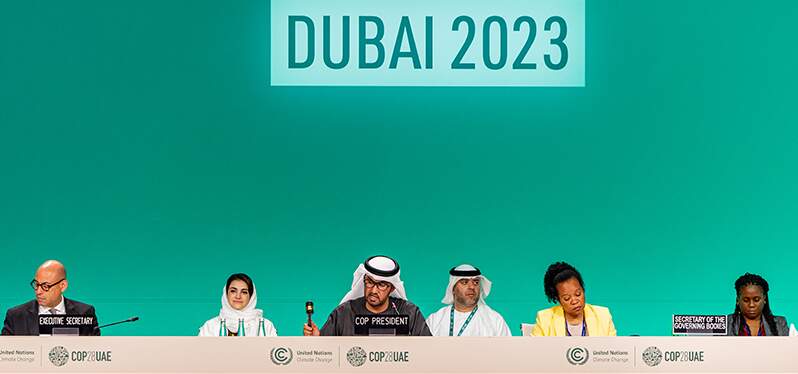
For Brazil, there were advances and setbacks. The country obtained more financial support for the Amazon Fund and President Lula took to Dubai the proposal for a Tropical Forest Protection Mechanism to support forest nations and promote a forest bioeconomy.
However, the country’s membership of OPEC+ has clouded the country’s expectations of climate leadership. This step towards OPEC was awarded the “Fossil of the Day” trophy, on 4/12, awarded by the Climate Action Network, a network of NGOs from more than 120 countries.
The draft final document already has some defined points. Two of them are: the nomination of Baku, capital of Azerbaijan, to hold COP29, in 2024, and the confirmation of Belém, in Pará, to hold COP30, in 2025. No other points are considered as decided.
The ambition of social organizations, Pacific island countries and even the UN Secretary General, Antônio Guterres, is for the world to move towards eliminating the use of fossil fuels, which includes oil, gas and coal. However, this ambition is increasingly far away.
Alex Rafalowicz, director of the NGO Fossil Fuel Non-Proliferation Treaty, told journalists that it is a step backwards: “We need an agreement that says we are going to phase out fossil fuels. These words do not appear in the text and the plan for how we can reach this solution does not appear.” Other activists refer to the text as “disastrous” and “shameful”.
After 285 press conferences, 152 global climate action events, 195 exhibitions and 366 parallel events, COP28 failed to achieve its main objective, of guaranteeing an agreement to gradually eliminate the use of oil as fuel by 2050. Ricardo’s warning remains Young, president of IDS (Democracy and Sustainability Institute): “The objective of eliminating the use of oil as a fuel will only be achieved by modeling new businesses for the trillions of dollars invested in global assets in this industry.”
Secretary General calls for efforts before the end of the Conference
António Guterres, secretary-general of the United Nations (UN), called for commitment from countries and “maximum flexibility” to finalize socio-environmental agreements in these last moments of the global climate conference, which ends today, the 12th. “We cannot continue to postpone the decisions. We are out of options. And almost no time,” declared Guterres.
The UN leader also highlighted that governments need to guarantee social conditions for communities to adapt and protect themselves during transitions. According to him, “there are still big gaps that need to be addressed”. Guterres argued that great economic powers need to support emerging countries in this process of sustainable adaptation.
Brazil intends to conserve 15 million hectares of mangroves
The last day of the COP did not prevent further environmental conservation programs from being expanded. Countries want to raise R$20 billion to conserve mangroves by 2030.
The director of the Department of Ocean and Coastal Management of the Ministry of Environment and Climate Change (MMA), Ana Prates, confirmed Brazil’s adherence to the socio-environmental initiative. Resources must be invested in the protection and restoration of 15 million hectares of mangroves in different parts of the world.
According to a survey carried out, human action is responsible for more than 60% of mangrove losses. However, it is estimated that if 800,000 hectares of this ecosystem were recovered, around 350 million tons of carbon dioxide would be captured.
The conservation of these ecosystems would represent the preservation of around 1,500 different species on the marine coast and a better quality of life for populations living close to these areas.
Belém is formally the host of COP30 in 2025
The COP28 summit made official this Monday, 11th, the decision to elect Belém, capital of Pará, as the venue for COP30, in 2025. The announcement was made by the president of the current edition, Sultan Al Jaber.
With this resolution, for the first time an Amazonian city will be the stage for the main global climate discussions. At the same plenary session in Dubai, the capital of Azerbaijan, Baku, was chosen to host next year’s COP, COP29. With this, three major oil producers will organize the next Conferences in sequence.
Officialization was already awaited by the Brazilian government. In his opening speech at COP28, Lula already announced that the Conference would be held in Brazil in two years. Now, officially confirmed, the President of the Republic celebrated: “It’s one thing to discuss the Amazon in Egypt. Another is to discuss the Amazon in Berlin or Paris. Not now. Let’s discuss the importance of the Amazon within the Amazon. The indigenous issue seeing indigenous people. The issue of riverside people seeing riverside people and seeing how they live”. The governor of Pará, Helder Barbalho, also celebrated the choice. For him, it will be an opportunity for the world to better understand the challenges and potential of the region in tackling the climate crisis.
Fossil fuels may be left out of decisions
COP28 will end in a disappointing way, at least that is what environmentalists and state representatives say. The draft final declaration, presented on the last day of the Conference, does not provide concrete measures to eliminate the use of fossil fuels. “Some of these missing elements are fundamental,” said German Foreign Minister Annalena Baerbock.
The draft text, despite proposing measures to increase the consumption and production of renewable energy, does not meet all of society’s expectations. For the European Union Climate Commissioner, Wopke Hoekstra, “this text is clearly insufficient and disappointing”.
The final version of the document is still being negotiated by representatives of the almost 200 countries present at the conference, which will officially end today.
Brazil at COP28 is marked by advances and setbacks
For environmentalists and members of non-governmental organizations, Brazil’s participation in COP28 was, to say the least, contradictory. If, on the one hand, the country developed and participated in significant socio-environmental cooperation and raised donations for the Amazon Fund, on the other, the government insisted on being on the side of the “oil club”, by accepting the invitation to join OPEC+.
Not satisfied, shortly after the end of the 28th UN Climate Conference, which ends this Tuesday, the 12th, a mega auction is expected to be held, dubbed the “End of the World Auction”, for oil and gas exploration in the Amazon. The action goes against the speeches presented in Dubai, which guaranteed the commitment to energy transformation.
The National Oil, Gas and Biofuels Agency (ANP) plans to offer 602 new exploration areas, including 21 blocks in the Amazon River basin. This measure puts dozens of indigenous and quilombola communities in the region at risk, in addition to ignoring all the guidelines and agreements that were discussed throughout these 13 days of the Conference. “Experts point out that the new auction areas could result in emissions exceeding one gigaton of carbon equivalent, nullifying the climate gains predicted for the next decade”, highlights Mídia Ninja’s investigation.
The Amazon Fund, considered one of the main international initiatives to reduce gas emissions and preserve the tropical forest, completes 15 years of existence. This Monday, the 11th, authorities from Brazil and Europe spoke about the results and new perspectives of the program and announced more donations.
Andreas Bjelland Eriksen, Minister of Climate and Environment of Norway, highlighted the socio-environmental work carried out by Brazil over the last year. “I would like to celebrate the excellent results in reducing deforestation under the current government”, highlighted Eriksen. The Norwegian government announced the donation of 50 million dollars. “We have had a break in payments from the Amazon Fund since 2018 and, now, with the recognition of Lula and Marina’s efforts and Brazil’s strong ambitions, I am very happy to say that we will start again,” said the minister. Norway is the Fund’s pioneer and main donor, followed by Germany.
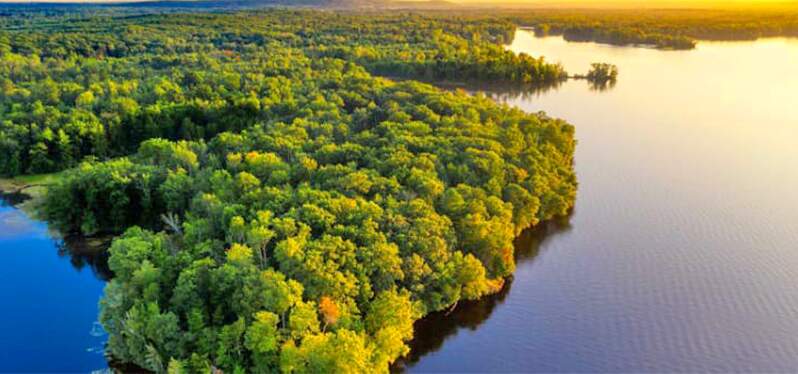
Stephen Barclay, UK Secretary of State for Environment, Food and Rural Affairs, also allocated £35 million for conservation and the development of socio-environmental measures in the region.
Altogether, there will be approximately R$450 million in new contributions. “Our partners make these donations in a relationship of trust and respect for the work that has been carried out in Brazil”, celebrated Marina Silva, Minister of Environment and Climate Change in Brazil, and explained that part of the contributions will be destined for research and generation of employment and income.
After four years of inactivity, the Fund once again received international donations for measures aimed at sustainable development and combating deforestation. Marcello Britto, executive secretary of the Legal Amazon Consortium, pointed out that the Fund also encourages the development of other preservation initiatives in the region: “the perfect functioning of the Amazon Fund is what provides conditions for the emergence of other funds”.
Water scarcity affects development in poorer areas
The climate crisis directly impacts the scarcity of global water resources, especially in vulnerable countries. During the penultimate day of COP28, Brazilian leaders presented a panel to address the challenges and perspectives of access to water in different Brazilian regions.
In addition to the lack of supply, less developed communities are also affected by other large-scale problems. “Scarces and droughts also affect production chains, food production and energy production”, highlighted Sofia Campos, director of Cities, Infrastructure and Environment at the Technological Research Institute of the State of São Paulo.
Camila Magalhães, Director of Operations at Mandi, an organization created by women in the region of Belém (PA), highlighted the importance and potential of the resource for the development of the Amazon. Despite this, according to Camila, “the cities in the region are always among the ten worst in the basic sanitation ranking ”. For her, there are many management and public policy challenges that “need to move forward” to reflect on the quality of life of the peripheral population. “Brazil is expected to be more committed to this agenda because it is also a way for us to reduce our inequalities”, she concluded.
Brazilian program to convert degraded areas
Increasing Brazilian agricultural production, with respect to socio-environmental issues, is one of the goals of the current government, as has been discussed in Dubai.
One of the measures presented by Brazil is the conversion of degraded areas into spaces with high potential for agricultural activities. “The expectation is that we will double Brazilian production by 2033, ensuring traceability and carbon measurement. The idea is to be the world’s largest food exporter and develop the interior of Brazil”, explained Roberto Perosa, Secretary of Commerce and International Relations at the Ministry of Agriculture and Livestock. The program intends, over the next ten years, to revitalize 40 million hectares of degraded pastures.
Banco do Brasil and MMA close cooperation agreement for the Amazon
Combining sustainable production and economic development is a challenge for the Brazilian government. Therefore, thinking about strategies that respect the development of the Amazon regions, Banco do Brasil and the Ministry of the Environment entered into a collaboration to promote the financing and scaling of the bioeconomy in the Amazon.
The celebration event, which took place this Sunday, 10th, during COP28, was attended by José Ricardo Sasseron, vice-president of Government and Corporate Sustainability at Banco do Brasil, and Carina Pimenta, secretary of Bioeconomy at the Ministry of the Environment .
For Carina, this is an audacious plan by Banco do Brasil to support the sector, especially in the coordination of partners who understand the bioeconomy process. “We, as the Ministry, are structuring a policy to support the bioeconomy development plan, strengthening the strategies that the financial sector has”, she explained. It is hoped that, with the financing, it will be possible to keep the forest standing and offer economic alternatives to the population.
Despite many expectations with the new partnership to serve the population that lives from extractivism, small farming or fish, José pointed out that there are many challenges to be overcome. “We know that many of them do not have land titles. We have to find ways to take credit to them, and help organize cooperatives and associations.”
Private initiatives can help achieve the zero deforestation goal
Brazil has been racing against time to achieve the goal of zero deforestation, which is why private initiatives are great allies for the preservation, restoration and regeneration of ecosystems.
During the panel on Deforestation Control and Concrete Cases of Nature-Based Solutions in Brazil , which took place today, the 11th, André Lima, extraordinary secretary for Deforestation Control and Territorial Environmental Planning at the Ministry of the Environment and Climate Change, highlighted that these “ initiatives are considered positive and fundamental to the strategies that Brazil has adopted since January 1st”.
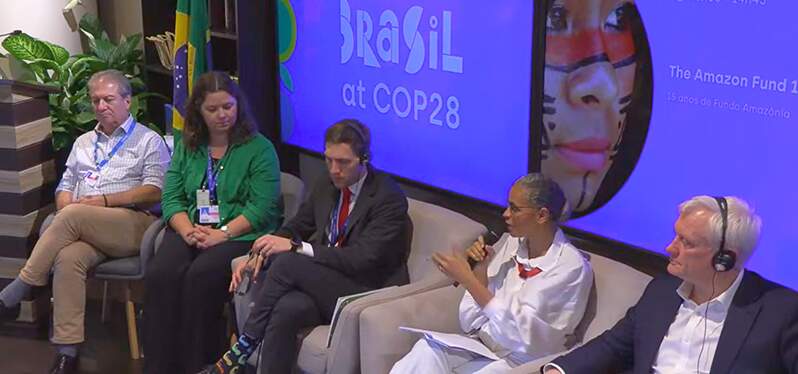
Today, the scenario calls for more urgency and action, since the Cerrado is currently the biome with the highest growth in deforestation, at almost 300%.
The panel brought together representatives from Reservas Votorantim, ECCON Soluções Ambientais, Citrosuco, TNC Brasil, and GSS Carbono e Inovação, to showcase success stories and challenges in promoting sustainability in Brazilian biomes. And, mainly, the work to raise awareness and engage local residents and producers for the best use of the soil and its conservation.
Energy, education and human rights: youth agendas
One of the organizations with the greatest activism at climate COPs taking place around the world is Engajamundo , an association of young people with a history of impactful interventions at various conferences.
One of the most emblematic was the speech given by the NGO’s former coordinator, Raquel Rosenberg, at the COP in Paris. Eight years ago, she stated: “In my generation, climate change went from science to reality, directly impacting people’s lives, especially the poorest and most marginalized.”
At COP28, in Dubai, young people from Engajamundo continue their fight, knowing that today’s adults, those who have the power to transform reality, are not doing enough. It is now up to young Endrew Machado de Almeida, a law student at Universidade Federal Fluminense and founder of the collective Lentes Pretas (@lentespretas_), to raise his voice for the rights of future generations.
He complains about the slowness of decision-making, which is in contrast to the speed of the climate emergency and the needs of the most needy and underserved populations, who live in the most vulnerable countries and in the poor areas of many of the richest countries. And, at this COP, he points to the energy transition as the main demand, but without much confidence in a decision consistent with the future.
Oil and clean energy seem to be the center of concern at COP28, whether to accelerate or postpone the end of fossil fuels.
The issue is to make a fair energy transition in a timely manner to maintain the 1.5 ºC climate target. We need to talk about a transition in the energy matrix that is accessible to everyone who needs energy, in Brazil and around the world. However, this is an issue that is being put aside at this COP.
One of the ways to achieve political action is usually pressure from society. How to increase and improve this pressure?
Engajamundo has been proposing and working to provide climate education in schools, so that teachers receive training on climate change and develop climate education activities consistent with each stage of teaching, at all levels.
Engajamundo also has work related to the safety of activists.
It’s true, the protection of environmental defenders is fundamental, and Brazil is where the most activists and environmental protectors are killed, people who work in defense of communities and indigenous peoples. It is very important that the Brazilian Congress ratifies the Escazú Agreement, adopted in Escazú, Costa Rica, on March 4, 2018, and which includes the defense of the human rights of social and environmental activists. President Lula has already signed it, now it is up to Congress.
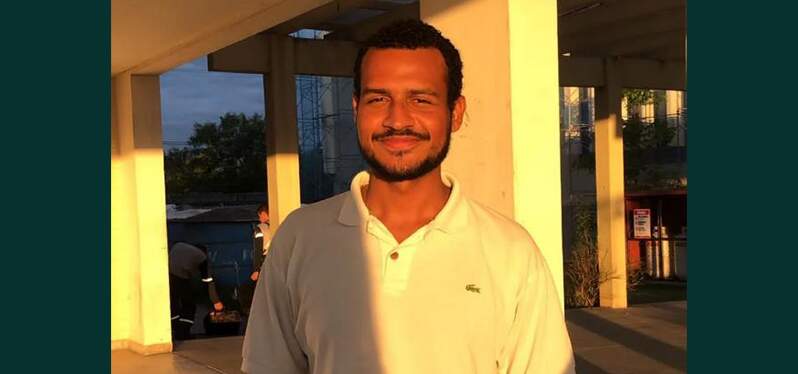
Engajamundo came to this COP with three main agendas. What are they?
Yes, for us there are three priorities among the hundreds of demands that arise in these meetings:
Do you believe that participants and negotiators of this COP are attentive to the demands of young people?
I think we got attention. I see that many decision makers stop to listen to us, as a sign of respect and equality. There is no longer the pejorative reaction that “they are just young people”. From my perspective, the relationship with civil society has improved, specifically between young people and decision makers. There is a more favorable perception of young people’s proposals to improve life in the future. I believe that we are managing to influence decisions, gain more and more space and talk to more and more actors.
Another important group at this COP is indigenous representation, including an important activist, Txai Suruí, who is also a member of Engajamundo.
Indigenous peoples have articulated a lot. I think they are one of the largest groups of organizers in the country against social and environmental crimes. I believe that they are gaining prominence and increasingly influencing the country’s decisions. There is also the black movement, which is now also achieving a very open dialogue with civil society, after a long time trying to gain space. However, for both indigenous and black people, it is still not enough. Not all voices are being heard and not everyone is a protagonist, such as, for example, quilombola communities.
How do you see the legacy of COP28?
This COP in Dubai offered the opportunity to increase the role of communities, but there is still much to be done, especially in relation to quilombola communities, which are still underrepresented. There are some things to be celebrated, such as the Loss and Damage Fund, approved on the first day of the conference, many articulations between social movements around the world and a look to tomorrow.
Many young people are anxious, waiting for faster actions, but everything will happen in a daily movement, if we continue to be militant and look at each day-to-day action to change what needs to be changed. Am I optimistic? No. But I’m not pessimistic either. I believe that the young people of today have to commit to the young people of tomorrow, who will be our children and grandchildren. We need to act to improve what is around us, always do what we can, and never give up.
Brazil must prepare for one of the most important moments in its tradition of environmental conferences. COP30 should rival Rio92, when the Earth Charter was created, and Rio+20, which gave rise to the 17 Sustainable Development Goals.
To talk about this and other topics, we invited Ricardo Young, one of the few Brazilian leaders who walks with ease in a multiplicity of environments. A successful businessman, he has a degree in public management from FGV, he participated in the founding of important business organizations, such as the Ethos Institute, he was a candidate for the Senate and councilor in the city of São Paulo, he played a decisive role in the creation of the Sustainable Amazon Forum and , is currently president of IDS – Institute for Democracy and Sustainability. He is also a scholar, working at the Institute of Advanced Studies at USP. His striking presence is common, both at meetings of civil society organizations and at business forums, and his slow speech conveys the experience of a life dedicated to sustainability.
This is one of the few times that Ricardo does not travel to participate in a climate conference. However, it is monitoring from a distance and attentive to the development of commitments and agreements, seeking to anticipate the challenges that Brazilian and global societies will have to face at the COP in Belém, in 2025, when countries will have to take stock of the goals assumed in Paris, in 2015, and present the new goals that will come into force from 2025.
This conversation with journalist Dal Marcondes is an analysis of the current moment at the COP and a look towards tomorrow.
Ricardo, what do you think about COP28 taking place in an oil country, in a situation where fossil fuels are in the climate spotlight?
The COP in Dubai highlights a process of soft power in oil-producing countries, at a time when the issue of reducing, and even banning, fossil fuels has become central. And this restrictions agenda will accelerate significantly. The actions of these countries are an attempt to put on the table that oil is not the only climate villain, and to buy time.
The thesis is that oil and its derivatives will still be needed in a much longer transition than desired by the world. So now we are starting to really face what the oil lobby is and its work to slow down the energy transition.
But you can’t criminalize oil, which practically brought us from the Middle Ages to the digital world .
This is true, we have to change the way we produce energy, but oil is not just fuel. Petrochemicals offers a huge variety of basic products for modern societies, from plastics to pigments, oils, paints, medicines, computers and much more. There are very few things and objects in modern life that do not contain some petroleum derivative in their composition.
So do oil producers need to take their business models in another direction?
Yes, moving towards other activities that are also essential, much less polluting, but equally necessary for society. The issue is to abandon the use of oil as fuel and help transform, in this new world, the enormous assets tied up in fuel refining and production into another type of business, also profitable and sustainable.
What paths can Brazil take, which in the last 50 years has become a major oil producer?
It is not possible to take climate leadership if we are not very clear about this oil issue. Of course, you won’t stop exploring overnight, but you can, initially, freeze your production and produce in a decreasing way, as you accelerate alternative and clean energies. However, it is necessary to establish, simultaneously, an industrial policy that takes into account the new demands of the world, and that can replace oil in the national and global financial balance.
Brazil has now been invited to join OPEC.
Oil has become one of the important products in Brazil’s export basket. Giving up on this means seeking a productive and industrial transition that can gradually compensate for the importance that oil has assumed in the balance of payments. If the ecological transition proposed by Minister Haddad has this lucidity and begins to identify areas in which the country can be competitive with high added value, such as green hydrogen, industrial components of wind farms, solar panels and electric cars, we will be able to gradually change the export agenda.
In 2025, Brazil will host a COP in the Amazon. What will be the challenges that must be faced?
I believe that COP30 has an important political objective. We are not moving faster on the climate agenda because we have a very reactionary Congress on several fronts, especially on environmental issues. Brazil will have to position itself internationally, and expose the relative strength that the ruralist caucus has in Congress. It will take courage to make commitments that may highlight the internal conflicts between a progressive agenda and a conservative opposition. The country needs to position itself strategically.
At Rio92, former president Fernando Collor was being deposed. However, there was unity and we managed to build important consensus. Brazil has this ability to come together at crucial moments and build courageous solutions. We have done this many times in our history. There are many good challenges before we reach the COP in Belém, and an even bigger one is to emerge from it as a country more committed to the future and prepared to take on a greater leading role in the global fight against the climate emergency.

Indigenous people demand more incentives
One of the important demands for the original peoples is to think together with them management plans that make sense for their traditions. That’s not what’s happening. According to Ceiça Pitaguary, secretary of Indigenous Environmental and Territorial Management at the Ministry of Indigenous Peoples, who participated in a debate this Sunday, 10, at COP28, Brazil has adopted an inverted model, with “the allocation of many resources to large productions, while activities carried out in indigenous territories become more vulnerable”. Ceiça defended reformulating this system: “we have to have more balance between what is directed to large producers and the activities of indigenous communities”. She also reinforced the need to value community products, which are resold in urban markets at prices seven to ten times higher than those received by producers.
The impacts of climate on food production
“A silent decrease in rainfall could directly affect agriculture in the North region,” explained Ludmilla Rattis, researcher at the Amazon Environmental Research Institute (Ipam). This Sunday, the 10th, once again the impact of climate change on food systems was a central discussion at COP28. Ludmilla links the increase in droughts in the Amazon with the decrease in productivity. “This year’s expectation is for very low production and that is desperate,” she highlighted.
The climate crisis doesn’t just affect food planting. Livestock farming also faces challenges with droughts. Caio Penido, president of the Mato-Grossense Meat Institute (Imac), believes that regulation and subsidies also need to reach small producers, which correspond to around 70% of the total. “They are placed on that small piece of land without the necessary support to carry out livestock farming in line with the transformations in food systems, without technical assistance or technology to produce better”, added Paulo Pianez, Director of Sustainability and Communication at Marfrig. Even with the challenges, he believes that low-carbon and extremely productive agriculture is possible in the Amazon, with a focus on tackling global food insecurity. “In areas that were previously destined for pasture, you can not only recover, but even contribute to reforesting that biodiversity that was lost at some point,” he concluded.
Organization works to save biodiversity
This Sunday, the 10th, at COP28, was dedicated to the economy of biodiversity. The dialogues highlighted the need for synchrony between social organizations that operate in different territories and biomes, supporting local production and companies interested in inputs and products, in addition to enabling commercial chains. However, this partnership needs to consider social, cultural, economic, environmental aspects and the specific challenges imposed by each Brazilian biome.
The organization Vitrine da Biodiversidade Brasileira (VBIO) is a platform that was born at the COP in Mexico, in 2016, and has the support of almost two dozen large companies and foundations and a wide variety of bioeconomy projects developed in communities or by entrepreneurs locations. The objective is to assist in the organization and fundraising process. In total, the platform already works with more than 500 approved projects, covering five Brazilian biomes.
The Women and Pinhão Culture project, carried out in the Atlantic Forest, highlights gender inclusion, by generating work and income for women in family farming, ensuring sustainability in production, through the planting of araucaria, the tree that produces pine nuts. “It is important to offer them land opportunities, promoting the conservation of the Araucaria biomes, which are among the most threatened in Brazil”, explained Rossana Godoy, a researcher at Embrapa. In addition to the Atlantic Forest, VBIO carries out actions in the Cerrado, Pantanal, Amazon and the marine biome, explained the organization’s founder, Francine Leal.
Judiciary updates itself for environmental defense
The environment issue is at the center of Brazilian society’s concerns, which is why the Judiciary left behind the scenes to play a leading role in socio-environmental protection this Sunday, 10th, in the panel Environmental Rule of Law and the Role of Judges in the Protection of the Amazon Forest . According to Minister Luís Roberto Barroso, president of the Supreme Federal Court of Brazil (STF), the Judiciary plays three important roles: the first is counter-majority, which allows the Court to invalidate acts of other powers that contradict the Constitution; the second is representative, which meets the social demands provided for by the Constitution; the third is the protection of fundamental rights, even when the legislative majority has not acted or society is demobilized.
Therefore, environmental protection involves different roles of the Judiciary, mainly in the safety of the next generations or those who do not yet have the right to vote, and in guaranteeing the fundamental rights provided for in the 1988 Federal Constitution. “Environmental protection has entered the mainstream , but we are late and in a hurry”, added Barroso.
For the Minister of Indigenous Peoples, Sônia Guajajara, the Judiciary is being called upon to look at both the environment and social inequalities. “There is no way to protect the forests without protecting the people who inhabit them”, she reinforced.
Mariana Cirne, from the Federal Attorney General’s Office, pointed out that environmental law is not done inside little boxes, but rather goes beyond geographic limits. “We in the Judiciary can help provide legal certainty against setbacks,” she explained.
However, despite awareness of the role of the Judiciary in defending socio-environmental rights, there is still a lot of resistance and areas of friction with the other powers of the Republic, which has prevented more effective progress towards the 2030 goals signed by Brazil in Paris COP.
The Climate Observatory (OC) is the most active Brazilian organization in monitoring and producing studies on climate change in the country. It is an entity that brings together almost a hundred other social organizations committed to combating climate change. We spoke with the executive secretary of the OC, Márcio Astrini, an experienced participant in climate COPs, who, in addition to having a solid background in public management, worked for 13 years at Greenpeace Brazil and is a member of the Brazilian Forum on Climate Change.
How have you seen the advances and setbacks at COP28?
Each conference has its own goals. Some decisions are made at the conference itself, agreements are signed and things move forward. There are other decisions that involve the interests of different countries, which need more negotiation and maturity. At this moment, the more we can approve what is pending at other conferences and clear the agenda, the better for Brazil. If these agreements move forward, we will be able to move towards the COP in Belém, in 2025, with a cleaner agenda and we will be able to focus on what really matters, which is the end of fossil fuels.
And what are the issues that need to be resolved to clear the agenda?
At this COP, the creation of the Loss and Damage Fund was advanced, to support the most vulnerable countries and populations, but the necessary resources still need to be negotiated so that this fund can really act effectively. There are other topics to be discussed until the end of the conference and what is not advanced here will impact the agendas of the next COPs.
Has Brazil’s role at the COPs changed?
Brazil began to smell what a COP is, hosting a COP and, also, the expectations that are being placed upon the country. President Lula came to Dubai and was very demanding regarding Brazil’s entry into OPEC. He understood the contradiction in this and has already changed his approach. He heard that it is not just the forest agenda that will change the reality of the climate. If the country wants to lead the global climate agenda, it needs to do its homework and also talk about oil. The role of civil society in turning this key is fundamental.
Brazil arrived in Dubai with a very objective agenda, the creation of the Forest Financing Fund. Didn’t this idea come to fruition?
The Forest Financing Fund defended by Brazil was taking the focus away from the main point of this COP, which is to reach an agreement for the decarbonization of economies with the end of the use of fossil fuels by 2050. Furthermore, this fund would need donors and, for now, it’s an idea. There is nothing very concrete about him.
There are many representatives from the industry and oil countries at this COP. Is this impacting decisions in any way?
The idea of this COP in an oil producing country should be to draw attention to the need for a business model transition in these countries. But there is a reaction from the oil sector in relation to the Net Zero 2050 target. This is nothing new, they are always acting to disrupt conferences and negotiations. That’s not news.
What legacy do you think will be left behind from COP28?
We really need to see it to the end to see how it turns out. However, I am not optimistic. I think we have less and less time to waste, less and less time for blah-blah-blah. Very important and urgent decisions need to be made, and I don’t know if these decisions will come from here.
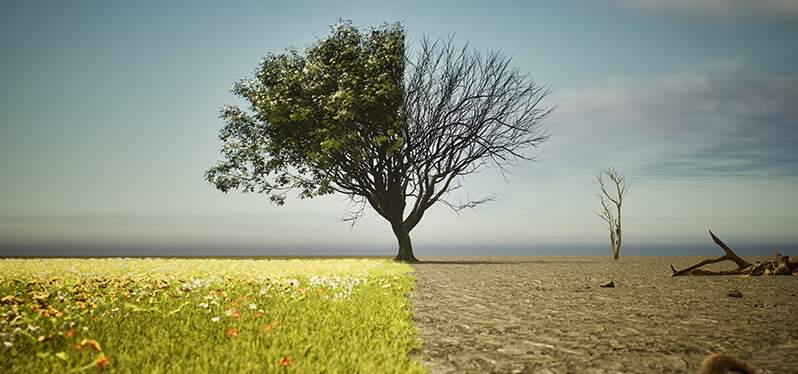
Indigenous people warn of the danger of lithium mining
At a demonstration by representatives of indigenous peoples from different parts of the planet, in Dubai, an open letter was delivered warning about the impacts of mining on the energy transition. “Clean energy products, such as solar panels, wind turbines and batteries for energy storage and electric vehicles, require many more minerals to produce than their fossil fuel counterparts.” The letter also points out that a 2022 study revealed that 54% of mineral deposits needed for the global energy transition – including lithium, copper, nickel and others – are located on or near indigenous peoples’ lands.
This was also the theme of the intervention by the Minister of Indigenous Peoples, Sonia Guajajara, who spoke at the Global Compact event, a UN initiative focused on corporate engagement in sustainability. The minister reinforced the importance of territorial management, guaranteeing rights, and knowledge of traditional populations. “The private sector needs to understand that it must engage in this process in which everyone wins, and that is also why this strong interest in questioning indigenous rights scares me a lot”, highlighted Sonia, considering that the risks of insisting on abusive contracts and practices are expose Brazil to accusations and convictions for violation of rights and the loss of protagonism in international negotiations.
USP brings low-carbon agriculture solutions to Dubai
The University of São Paulo (USP) is participating in COP28 with the presentation of projects and studies on natural ways to reduce carbon emissions and mitigate the effects of the global climate emergency. One of the reports presented highlights the importance of sustainable management in agriculture. For professor Carlos Eduardo Cerri, from the Luiz de Queiroz College of Agriculture (Esalq) at USP, agriculture, livestock and forestry are not only fundamental to the planet’s food security, but also have the potential to be part of the solution for change global climate. Studies on low-carbon rural production are advanced and available to society.
Cooperatives guarantee food security
Food insecurity resulting from the climate crisis remains a highlight of this edition of the COP. In a panel held by the Brazilian delegation, in partnership with members of organizations from Africa and Europe, emphasis was placed on the role of cooperative businesses in the development of environmental projects and solutions. For Danish Susanne Westhausen, president of the International Cooperative Alliance for Europe, cooperatives can act not only on food insecurity, but also in the energy and fishing sectors. “It is necessary to reconnect productions”, pointed out Westhausen, who defends joint work with food producers in cities. According to data presented, in 2050, around 80% of the food consumed in the world will come from cities.
Sebastião Nascimento de Aquino, from the board of the Cooperacre cooperative, said that the association promotes a shield of environmental protection through sustainable production. However, Aquino pointed out that more investments are needed. “The challenge is still great,” he highlighted. For him, producing families need more support.
Quilombo das Américas resumes the fight on the continent
Just like indigenous people, quilombola people are directly affected by global climate change. In an attempt to mitigate environmental impacts, the Brazilian government relaunched Quilombo das Américas during COP28, in Dubai. The objective is to articulate the struggle of quilombolas across the continent for the preservation of the environment.
This Saturday, the 9th, activists and authorities presented a panel on this major step in realizing quilombola rights in countries in Latin America and the Caribbean, and in promoting racial equality and climate justice. Ronaldo dos Santos, Secretary of Policies for Quilombolas, Traditional Peoples and Communities of African Origin, Terreiro Peoples and Gypsies, of the Ministry of Racial Equality, stated that it is necessary to think about strategies not just for Brazil. “Wind, storm, rain, heat and cold do not recognize national borders. It is necessary to dialogue with people from all over the Americas so that this is not just a strategy for Brazil,” he explained.
Bioeconomy is the key to global transformation
To make the Brazilian economy more sustainable, the support of a national bioeconomy plan is necessary. This Saturday, the 9th, opportunities were presented in this area that could boost business within the scope of the G20, a group of the 20 largest economies in the world, which will meet in 2024 in Rio de Janeiro under the presidency of Brazil.
Thiago Falda, president of the Brazilian Bioinnovation Association, highlighted Brazilian biological diversity to attract investments from different sectors. “The bioeconomy offers viable solutions for the production of compounds that replace fossil fuels and for the circularity of the economy,” he said.
Despite the potential of the bioeconomy in Brazil, representatives of climate organizations analyze the difficulties in its development. According to Guilherme Eidt, representative of the Society, Population and Nature Institute (ISPN), “it is necessary to serve, above all, the most vulnerable communities”.
UN calls for urgency in combating climate change
Simon Stiell, UN Climate Secretary, called for urgency in measures to decarbonize economies: “good intentions will not halve emissions this decade, nor will they save lives right now. Only serious progress in negotiations can produce results on the frontline.” Stiell hopes COP28 will bring a new paradigm and “not just ‘what’ governments should do, but also ‘how’ to get the job done.” For Stiell, if the objective is to save lives now and keep the global warming target of 1.5 ºC within reach, the most ambitious results of this year’s event must remain a reference for the negotiations. He reinforced that technologies and tools exist to be used to our advantage.
COP28 is still halfway through and the feeling of those there is that there are many good ideas and beautiful projects, but the central point of the climate crisis, the urgency of decarbonizing the planet, is not being touched upon.
Caetano Scannavino, one of the most articulate Brazilian environmentalists, who, together with his brother, doctor Eugênio Scannavino, founded the organization Saúde & Alegria, based in Santarém, Pará, is in Dubai in search of a utopia. His dream is for humanity to wake up and stop destroying things it is not capable of rebuilding.
And the Scannavino brothers understand utopias. Caetano abandoned a prosperous career as an advertiser in São Paulo and his brother left the comfort of his office to work in the banks of the Tapajós River. They founded an organization that saves lives, saves dreams and gave rise to a successful public health care policy in the Amazon rivers, embraced by the SUS.
In this exclusive interview for Synergia and Envolverde, Caetano explains his perceptions about COP28.
What have you noticed in the corridors and rooms of this COP. Are you optimistic?
To tell you the truth, I’m a little disappointed. It’s not over yet, but, barring any surprises, it’s becoming increasingly clear that we’re in a trap. We have many themes, many discussions, beautiful projects, well-intentioned people and everything else, but, at the end of the day, taking stock, we have been at COPs for 29 years, without going straight to the point, at the root of the problem , which is the elimination of fossil fuels, even if only gradually.
At this Conference there are many representatives from the oil industry. Is this getting in the way?
We are holding a COP in a country built on oil and presided over by a denialist oilman, Sultan Al Jaber. A COP with a record number of oil lobbyists and in the midst of a climate super emergency. The damage has already begun and those who pay for it are the most vulnerable countries and the poorest populations in these countries. Precisely those who contributed least or benefited from this state of affairs.
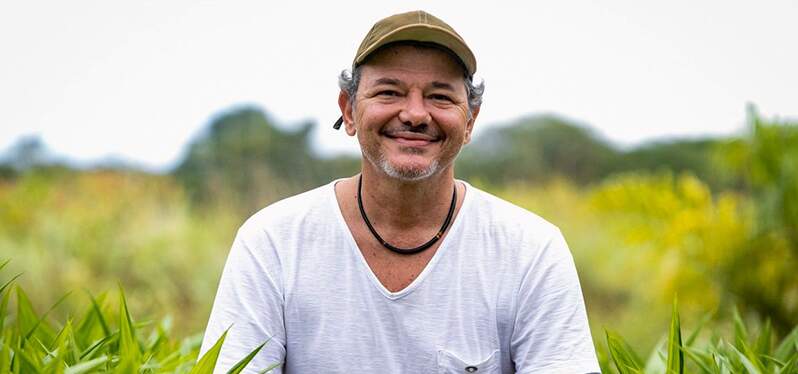
Do you think something good can still come from COP28?
Every day that we postpone what really needs to be done, which is to eliminate fossil fuels from our lives once and for all, the greater the damage to the planet will be. We have the agreement to reduce methane from livestock farming, and talk about zero deforestation, but nothing, no agreement signed in 29 years about eliminating the burning of fossil fuels. Even the Loss and Damage Fund is very little compared to what actually needs to be done.
Why do you think the Loss and Damage Fund is little?
Signing agreements does not necessarily mean that they will be fulfilled. Several financing decisions decided at previous COPs never came to fruition. Even in these agreements to reduce methane in livestock farming, I don’t have much confidence. I’m quite discouraged. I think we fell into a trap very well worked by the oil companies themselves. It’s like the world of the Internet, we’ve never seen so much information and, at the same time, we’ve never seen so much misinformation.
Why you say that?
COPs are increasingly broader, with debates in many areas. I have never seen so many themes at a COP. They became a space for relationships, conversations and speeches, with very little objectivity. Forest, river, water, ocean, it’s periphery, it’s culture, but at the same time this ends up distracting attention in relation to the elimination of fossil fuels. It may be important to review the format of these COPs, perhaps starting to think about work agendas focused on the transition and the elimination of the use of fossil fuels. Who knows, maybe then we’ll start to really move forward.
Brazil makes a leap in the Climate Change Performance Index
The drop in deforestation in the Amazon and the correction of the iNDC (Nationally Determined Contribution Index) assumed in the Paris Agreement, two of the main milestones in the inflection of Brazil’s climate policy, boost the country’s jump of 15 positions in the Climate Change Performance Index ( CCPI 2024), the ranking that analyzes the climate action of 63 countries plus the European Union. Going from 37th place last year to 23rd this year, Brazil is now in the group of countries with average performance.
Launched this Friday, 8th, at COP28, the CCPI is an initiative of the organizations Germanwatch and NewClimate Institute together with the network of NGOs Climate Action Now (CAN International). For the 19th consecutive year, the index tracks progress on climate action by the world’s largest greenhouse gas emitters. Together, the countries analyzed are responsible for more than 90% of global emissions. The conclusion of the monitoring is that, despite global growth in renewables, the world will remain far from meeting the goals of the Paris Agreement until there is a drastic reduction in fossil fuels. (With information from the Climate Observatory)
Lack of investment hinders sustainable programs
With enormous potential to run businesses that preserve and restore nature in Brazil, entrepreneurs analyze why investments are insufficient to scale sustainable projects.
During the panel presentation at COP28, the director of NatureFinance, Marcelo Furtado, pointed out the market’s lack of knowledge on socio-environmental issues as one of the main factors for this lack of investment. “When you bring up the topic of nature, the reading [of the financial market] is flawed, because investors don’t have systems, they don’t have data or there’s a lack of verification. This complication causes investors to move away from nature-oriented solutions,” he explained. He also stated that it is necessary to deregulate operations and organize a favorable environment to make it viable and attract the attention of financiers.
The energy transition and green neoindustrialization
The recent agreements and projects presented by the Brazilian government during COP28 point to important changes in the economy and the energy sector in the coming years.
This Friday, 8th, during the presentation of the Fair Energy Transition – Brazilian Protagonism panel, Elbia Gannoum, executive president of the Brazilian Association of Wind Energy and New Technologies (ABEEólica), explained how energy change can provide social transformation. “A study in the Northeast showed that GDP grew with the arrival of wind farms,” she detailed. In addition to being clean and renewable, this energy source brings positive impacts to the economy. “For every real you invest in wind energy, you return 2.9 reals to GDP,” she said.
Despite occupying a prominent place in the green energy transition, as the executive director of the Brazilian Hydrogen Industry Association (ABIHV), Fernanda Delgado, points out, it is necessary to think about a Green Economy. An advocate of low-carbon green hydrogen as a solution to Brazil’s gradual decarbonization, she argues that all production processes need to reduce carbon dioxide emissions throughout their production chain. “Much more than the composition or plurality of the energy matrix, hydrogen brings this possibility of green neo-industrialization”, she emphasizes.
COP is marked by the presence of young people
It is undeniable that the climate crisis is global and concerns activists of all ages. This edition of COP further highlights the participation of young leaders to minimize the effects on future generations.
This Friday, the 8th, the Minister of Environment and Climate Change, Marina Silva, participates in a panel that will address issues related to political advocacy, highlighting the fundamental role of young people in building a sustainable future.
Dozens of young people are in Dubai to ensure active participation in debates and decision-making about the future of the planet. In addition to being present in discussions about the climate, they also often organize protests and peaceful criticism of governments that are not very engaged with global needs. One example was the small delegation from the organization Engajamundo which, in partnership with Greenpeace Brasil, denounced the socio-environmental impacts that oil exploration in the Amazon region can cause.
Maria Eduarda Silva, 20 years old, another young participant, explains that her objective is “to bring debates and the active participation of children, adolescents and young people to COP28, because we are the most affected by climate change”. Despite her young age, Maria Eduarda has been involved in socio-environmental discussions for six years. Invited by Unicef, she is currently a representative of Brazil in the Unicef Youth Leadership Network Action for Climate and was recently appointed as Youth Advocate by Unicef Brazil.
Brazil should invest R$200 billion in bioenergy and carbon capture
Amid controversies over the use of fossil fuels in Brazil, the national secretary of Petroleum, Natural Gas and Biofuels of the Ministry of Mines and Energy, Pietro Mendes, spoke, during his appearance on one of the COP28 panels, about the government’s initiatives for financing the energy transition and the use of bioenergy and biofuels to mitigate climate change.
According to Pietro, the Fuel of the Future program will be able to contribute, by 2037, more than R$200 billion in bioenergy and carbon capture and storage (CCS).
Cities, in general, and large urban centers, in particular, are sinks of resources and major generators of climate impacts. However, they are not central to the debates promoted at the COPs that annually debate the climate.
This absence of cities in global climate policies is a point raised by the doctor and former councilor of São Paulo, Gilberto Natalini, who is in Dubai participating in COP28. He believes that cities should have a more central role in conversations about the transition to a low-carbon economy, since it is in their streets and avenues that most fossil fuels, vectors of CO² emissions, are burned. In addition, it is also in cities that populations suffer the most evident impacts on health and destruction due to extreme events.
Check out the exclusive interview with Natalini.
How do you see the representation of cities at COPs?
I believe that cities are not adequately represented in COP decisions. Unfortunately, it is a meeting only of heads of state and national governments and almost nothing is discussed about cities. They remain in a parallel space and the discussions and debates that representatives of cities and organizations that work with the quality of urban spaces, such as Iclei (Local Governments for Sustainability), for example, do not appear in the final documents of the COPs. We had many conversations with representatives from cities around the world, and our fight is exactly for cities to have an institutional space.
Does the non-participation of cities mean that the majority of the world’s population is underrepresented at COPs?
This needs to change in the next COPs, because, after all, a huge part of the world’s population lives in cities and it is cities that form the environments most sensitive to changes in the climate. These are habitats vulnerable to climate extremes and where storms and other phenomena destroy lives, property and infrastructure. These are great losses for families and society, and for public authorities – which will need to repair the losses.
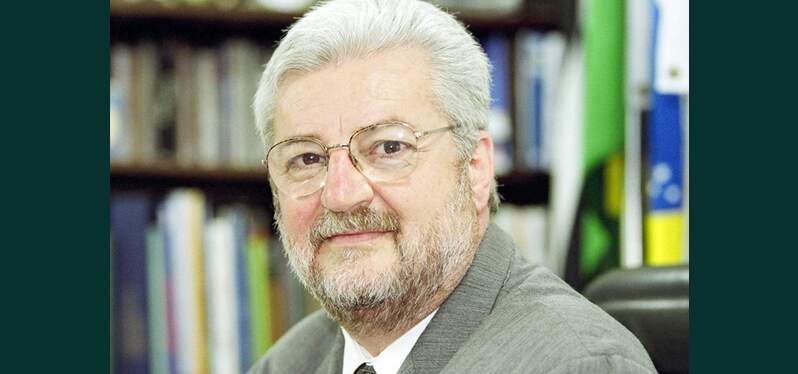
How can cities contribute to mitigating climate change?
Cities can make major contributions to combating climate change, especially given that a large proportion of greenhouse gases are emitted by the vehicle fleet. In a city like São Paulo, for example, 70% of CO² emissions come from the burning of fossil fuels by cars, trucks and buses. In addition, there is also stationary energy, lighting energy, energy used in refrigerators and air conditioning, all the machinery in cities that uses a lot of energy and also emits greenhouse gases. Electrification of public transport and energy efficiency programs in cities can make all the difference.
Can cities be seen as an important part of the climate problem?
Cities are major users of fossil fuels. So, everything that happens in them can be improved from a climate action perspective. Including cities in climate change control plans is essential, as the majority of humanity lives in these places. This is where energy is consumed, where waste is produced, where sanitation processes are, most of the time, deficient. Ultimately, it is a highly complex topic that needs to be on the agenda of major climate conferences. Of course, topics such as land use, forests, agriculture and others are very important, but I repeat: cities are also important.
Do you believe that COP28 will be able to leave a positive legacy?
I am very apprehensive about the Dubai COP, about the results. Honestly speaking, I saw a statement from the president of the COP, who is actually an oil businessman, in which he says that there is no scientific proof that global warming is produced by the burning of fossil fuels. If the president of COP28 has this kind of opinion, it becomes difficult to believe that the organization is really working towards eliminating the use of oil by 2050. It’s all very confusing here, a certain disorganization. There are around 80 thousand people from almost 200 countries and it is difficult to establish a rule of priorities. Even so, I hope that, in the end, the conclusions are practical, both in the field of mitigation and adaptation and in the field of financing, right?
Indigenous voices are silenced by oil allies
Even with the prominent indigenous participation in the COP, the Conference revealed the inequalities in the participation between these peoples and the large oil companies in discussions about the global climate crisis.
The presence of commercial groups linked to fossil fuels was almost eight times greater than that of official indigenous representatives. The number of oil lobbyists has, in fact, gradually increased over the years. There are at least 2,456 representatives at this COP, compared to 636 last year. At COP26, in Glasgow, there were 503.
Agribusiness shows resistance to change
The British portal The Guardian published a report citing the agribusiness giants, who arrive at the COP with the aim of defending livestock farming “with full force”, pointing out the importance of their activities as a “key piece” in global food security.
In addition to the record participation of lobbyists from the gas and oil sector, COP28 also had a significant presence of members of agribusiness, committed to resisting the dietary changes presented in Dubai and stopping them.
Data points to high Brazilian investments in oil in 2022
The Brazilian discourse in defense of the environment and the urgent need for the world to discuss energy changes, in practice, is disappointing. At least this is what research by Inesc – Institute of Socioeconomic Studies shows, which indicates investments of more than R$80 billion in the form of subsidies for fossil fuels, in 2022. Compared to 2021, this amount represents an increase of 20% for the sector, and five times more than all financing for renewable energy production in the country.
The research’s revelations call into question the presentations by Brazilian authorities at COP28, in which the country appears to be a protagonist in the global debate on energy transition. However, at the same time, it continues to consume and invest in oil.
Brazil and China seek sustainable trade partnership
The governments of Brazil and China plan to cooperate to face global challenges related to sustainability. The two countries met to discuss alternatives for building low-carbon agriculture. The discussion about sustainable food is as necessary as energy transition projects. The uncontrolled climate crisis has increased cases of malnutrition and food insecurity, especially in the most vulnerable countries of the Global South. Addressing this issue at COP28 reinforces to countries with agricultural activity the need to improve land use for responsible production. “The discussions at this conference demonstrate that we will not solve climate challenges unilaterally”, highlighted the Secretary of Innovation, Sustainable Development, Irrigation and Cooperatives at the Brazilian Ministry of Agriculture, Renata Miranda.
On the day dedicated to food at COP28, a debate with experts in the field shows that food production is an essential point for people’s food security and for reducing emissions through the adoption of Low Carbon Agriculture principles and the reduction of meat consumption around the world. In Brazil, one of the world’s main food producers, agriculture is responsible for 70% of greenhouse gas emissions and also a similar rate of use of water available for consumption.
Estimates show that adopting more sustainable production methods can have a positive impact on reducing emissions by up to 75%. For Juliana Tângari, director of the Food of Tomorrow Institute, who participated in the panel on Food System Transition this Wednesday, 6th, in Dubai, people’s choices can help improve the emissions profile of food. She explains that there is enormous monotony in the way food is produced and consumed. “Almost everywhere in the world, food is based on a very small number of cereals and plants,” she explains. And she says that regionalization and the inclusion of a greater variety of products can be a factor in food security, health and climate care.
Puyr Tembé, secretary of Indigenous Peoples of the State of Pará, and Raquel Santiago, professor at the Federal University of Goiás and collaborator at Lancet Coutdown América do Sul, an organization dedicated to the study of health and climate change in South America, also participated in this panel.
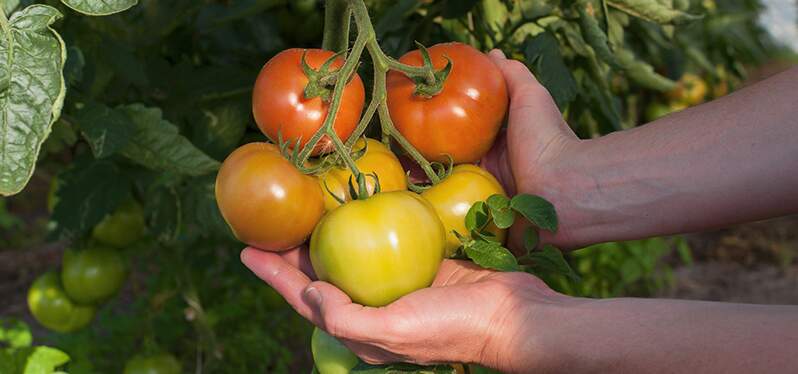
For Raquel Santiago, the high levels of malnutrition in countries in the Global South, which includes Brazil, are directly related to the lack of diversity in food sources. “We have around five products that are the basis of the daily diet of the vast majority of the population, when they have access to food”, explained the teacher. She warned that this lack of diversity also impacts the countries’ biodiversity, because it causes large extensions of monocultures without precautions towards animals and communities.
This diversity of food available in biodiversity was, according to Puyr Tembé, largely responsible for ensuring food security and health for forest people in Brazil during the covid-19 pandemic. According to her, this biodiversity not only provides food, but also the medicines that the indigenous people used to combat the disease and that guaranteed low mortality rates among their people.
The dialogues, mediated by Maurício Alcântara, co-founder of Instituto Regenera, an organization that works to strengthen regenerative and participatory food systems, made clear the symbiotic relationship between good nutrition and the health of populations. As well as the negative impacts of the current modeling of agricultural production and processed foods around the world. Food, health and climate are part of the same equation.
Check out the panel video .
Global ecosystems are at breaking point
The Global Tipping Point report, coordinated by the University of Exeter, in the United Kingdom, in partnership with the Bezos Earth Fund, was presented at the 28th United Nations Climate Conference, COP28, and carries important warnings about the existence of advanced points of rupture with serious impacts on the regenerative capacity of planetary ecosystems.
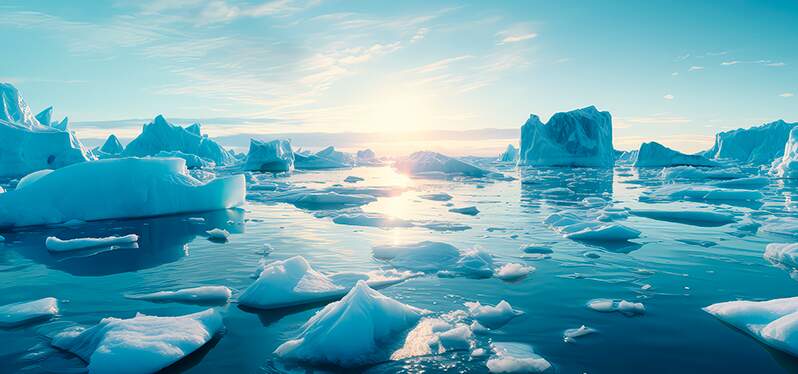
The text calls for urgent measures to reverse the “disastrous trajectory” followed by humanity and points out five breaking points that may already be surpassed, and three more that could be reached in the 2030s. This could happen even if the average temperature rises. of the planet remains at 1.5 ºC.
Scientists warn of changes in climate systems in different parts of the planet. The tipping points most at risk include the collapse of ice shelves in Greenland and Antarctica, the thawing of permafrost , the death of coral reefs in warm waters, and the collapse of an ocean current in the North Atlantic.
The scientists’ warning goes further. According to the data collected, these transformations in global climate systems are expected to trigger devastating effects, with loss of the capacity to grow basic food crops and huge impacts on vulnerable communities, in addition to political disruptions and disruptions in the economies of many countries.
Recommendations on Global Tipping Point
The study presents the following six recommendations.
Check out the full Global Tipping Point report
Itaipu is a reference in solid waste management
The increase in recycling and the socio-productive insertion of waste pickers were on the agenda of the Brazilian delegation this Wednesday, 6th, at COP28. During the presentation of the panel “Global Recycling Alliance: The global agreement to reduce plastic pollution and the role of recyclable material collectors in the circular economy”, Fabiana de Orte Stramm, representative of Itaipu Binacional, explained the Itaipu Mais que Energia Program , which manages recycling projects and waste management, in addition to waste collection in 55 municipalities, contributing both to sustainability and to increasing the average monthly income of collectors in the region, and to their efficiency at work.
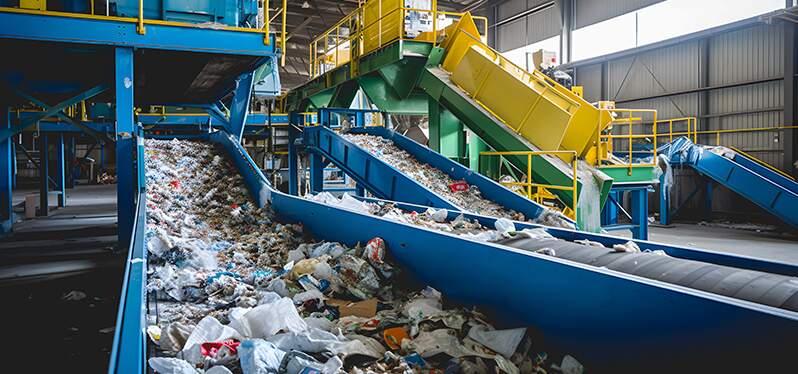
The Plant, in addition to offering all technological and technical equipment, also finances up to 80% of the operation, depending on the vulnerability of the municipality. At the end of the process, “the waste goes to the recyclables industry or to reverse logistics entities”, explains Fabiana. Considering only the lakes, the work of collectors and fishermen in the region was responsible for collecting 300 tons of waste.
Dubai conference breaks record for oil representatives
In less than seven days, the Climate Change Conference became the stage for the meeting of 2,456 oil lobbyists, according to a survey carried out by Kick Big Polluters Out (KBPO), a coalition of 450 organizations from different countries. This number of people is greater than the vast majority of delegations from participating countries, a record attendance compared to other COPs. One of the causes cited is that fossil fuel representatives received more passes to the conference than those from other countries.
Greenhouse gas emissions increase
Even with the urgent alarms to reduce the emission of greenhouse gases in order to mitigate global warming, the world is going against recommendations, as two surveys showed. Launched during COP28, the study carried out by the Global Carbon Project showed a 1.1% increase in these emissions in 2023.
Another report, prepared by Climate Action Tracker, also published at COP28, reinforced that, if no measures are taken against CO2 emissions, the planet will heat up by 2.7 ºC this century.
The Minister of Indigenous Peoples, Sonia Guajajara, who leads the Brazilian delegation at COP28, defends that financing for climate projects also includes indigenous peoples.
During the march of indigenous peoples, this Tuesday, 5th, in Dubai, the minister highlighted the importance of indigenous leadership and defended that this be taken into account when distributing resources to combat the climate crisis.
“Indigenous peoples, according to United Nations data, make up just 5% of the world’s population and we protect 82% of the planet’s living biodiversity. We are here bringing this voice of indigenous peoples, so that we can also be included as part of the solution to contain this climate crisis”, said the minister.
The sixth day of COP28 was dedicated to indigenous peoples. Alongside dozens of women from indigenous populations, the Brazilian minister led a march at the opening of the conference.
One third of Amazon preservation is in indigenous areas
The strategic role of indigenous peoples in combating deforestation and confronting the climate crisis is the theme of the day dedicated to indigenous peoples by Espaço Brasil.
Minister Sônia Guajajara highlighted the role of social organizations in supporting the presence of these people at climate conferences, especially Ipam: “The world needs to understand the role of indigenous people in containing climate change. We need to talk more, talk more, talk more”, said the minister.
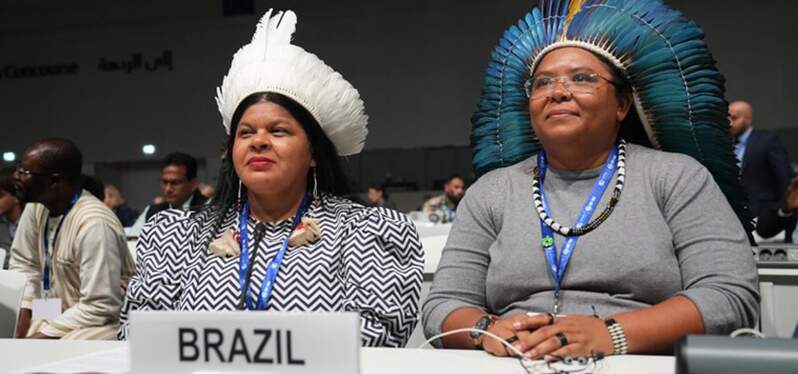
Julia Shimbo, Ipam researcher and scientific coordinator of the MapBiomas network, translated into numbers the conclusion that indigenous peoples are those who most protect the environment in Brazil: 19% of the 112 million hectares of native vegetation are within their territories. Indigenous lands represent 105 million hectares, equivalent to 13% of Brazil, with 428 territories. However, only 8% of the people who inhabit them have full ownership.
Triple nuclear energy by 2050
A declaration launched at COP28, signed by countries from four continents, proposes tripling the supply of nuclear energy to achieve the Net Zero-2050 objective.
John Kerry, United States special envoy for climate, defended this goal, explaining that it will not be possible to reach net-zero emissions by 2050 if more nuclear energy production is not incorporated. This opinion, however, is not shared by environmental movements, which consider nuclear generation to be as big a risk as CO² emissions.
Signed the declaration of support for nuclear energy: Bulgaria, Canada, South Korea, United Arab Emirates, Slovakia, Slovenia, United States, Finland, France, Ghana, Hungary, Japan, Moldova, Mongolia, Morocco, Netherlands, Poland, Romania , Sweden, United Kingdom, Czech Republic and Ukraine.
MSF – very little is done for vulnerable people
When speaking to world leaders at COP28, Christos Christou, president of the organization Doctors Without Borders (MSF) warned that international crises are increasing in scale and intensity.
He highlighted that the impacts of climate change are reflected in queues for care, from Niger to Mozambique, from Honduras to Bangladesh, with patients suffering from infectious diseases such as malaria and dengue, with malnutrition and the most diverse health problems. The deadly combination of malaria and malnutrition has overwhelmed MSF pediatric wards in the Sahel region of Chad, where teams now provide year-round treatment for malnutrition.
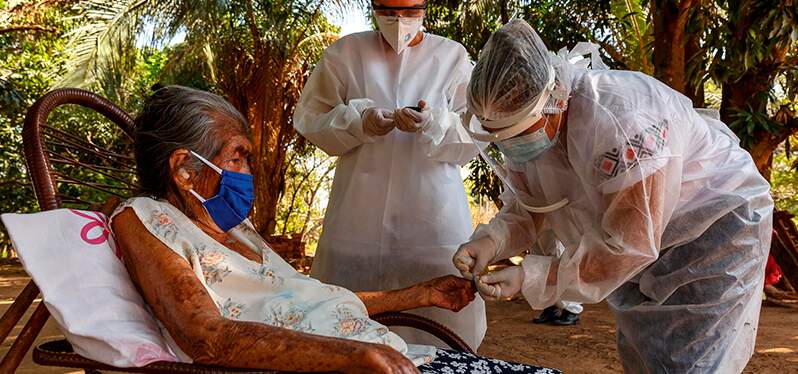
Christou emphasized that these communities need financial and technical support corresponding to the climate scale, to adapt and deal with the impacts and consequences. “There is an increasing need to firmly place health at the center of policies, negotiations and actions”, she concluded.
Young people receive awards for climate impact projects
Michelle Zárate Palomec of Mexico and Sebastian Mwaura of Kenya will receive honors as winner and winner of the UN Global Climate Action Prize during COP28. The selection took place among hundreds of candidates from more than 120 countries for their efforts to find solutions to climate issues in their regions.
Michelle Palomoc, 27, leads an organization responsible for protecting water resources in vulnerable indigenous communities in the State of Oaxaca. Sebastian focused on accelerating the energy transition and gender diversity. At 35, Mwara is the co-founder of Yna Kenya, which encourages adoption of electric vehicles and contributes to 12,000 women’s jobs in his country.
Little diversity shows gender inequality at COP
One of the most discussed topics in the current edition of the COP is gender diversity and the leadership of projects developed by women for transformations to combat climate change. However, the first days of COP28 were marked by the absence of women in crucial climate discussions.
The gender discrepancy is made explicit in the survey carried out by Mídia Ninja , which shows that only 15 of the 140 voices scheduled to speak at the World Summit on Climate Action are female. This number leads to a reflection on whether female voices are being heard and whether their projects that drive transformative changes are implemented within climate policies.
The announcement of this financing, worth R$1 billion, made during COP28, was considered an important step to go beyond stopping deforestation in the Brazilian Amazon, and to begin major work to recover areas that have already been deforested and, often, abandoned and without any productive activity.
Ecological restoration projects aimed at Conservation Units, Indigenous Lands and territories of traditional peoples and communities, non-designated public areas and Permanent Preservation Areas (APP) and Legal Reserve (RL) of settlements or small properties (of up to four tax modules).
The evaluation of the projects will be carried out by a committee formed by representatives of the BNDES, the ministries of the Environment and Climate Change and of Agrarian Development and Family Farming, the States, and civil society organizations that are members of the Amazon Fund Steering Committee.
According to Aloizio Mercadante, president of BNDES, regenerating degraded territories in the Amazon “is the cheapest and fastest response to the climate crisis, we will sequester and store carbon, in addition to strengthening the region’s environmental services”.
Amazon without poverty
The Amazon economy was also present at the Panel on Strategies for a Poverty-Free and Sustainable Amazon, which brought together women from the National Articulation of Indigenous Women Warriors of Ancestry, the State Secretariat for Indigenous Peoples of Pará, representatives from ApexBrasil, the governor of Pará Helder Barbalho, the president of Banco da Amazônia, Luiz Claudio Lessa, and the former Minister of the Environment, Izabella Teixeira.
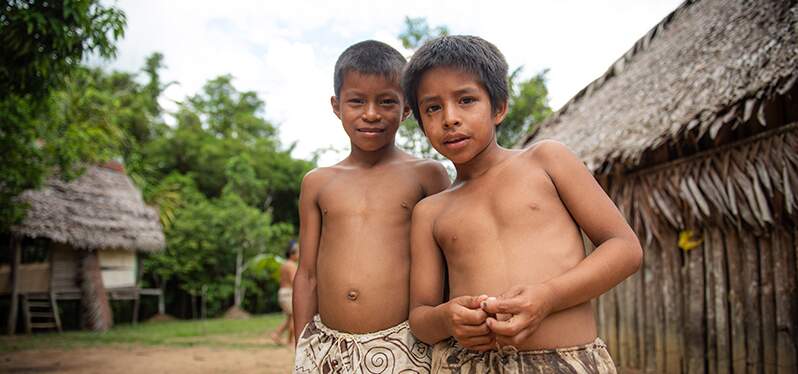
You have to listen to communities
The director of the Climate Observatory, Marcio Astrini, reinforced, in a meeting with President Lula, the importance of listening to indigenous and quilombola communities, mainly affected by the climate crisis, and, at the same time, the guardians of the forest, who help to preserve our biomes.
4/12 is Gender Day at COP28
The climate emergency has a disproportionate impact on vulnerable populations, especially women in situations of poverty. Despite the challenges, women are responding to climate change with their own expertise and sustainability leadership.
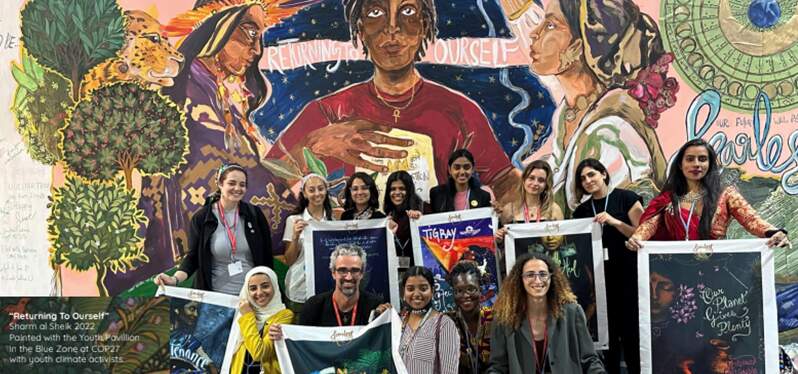
COP28 Gender Day seeks to ensure inclusive policies that recognize women’s role in promoting resilient communities and effective climate action, emphasizing the need to improve responsiveness with access to climate resources and finance.
Democratic energy transition
UN Secretary-General António Guterres wants to create a panel to ensure an equitable shift to renewable energy. He highlights that the exit from oil will create high demand for some minerals linked to clean energy technologies, which is why he warns about the importance of seeking guidelines and a sustainable and fair approach to the extraction of these resources.
Brazil is the Fossil of the Day
This Monday, the 4th, Brazil received the Fossil of the Day award, promoted by the Climate Action Network (CAN). According to the organization, the award is due to the country’s membership in OPEC+, announced with pomp by the Minister of Mines and Energy, Alexandre Silveira, during COP28, in Dubai.

Programming focused on the health agenda
The United Nations Conference on Climate Change dedicated an entire day to issues related to the health agenda. The director general of the World Health Organization, Tedros Adhanom Ghebreyesus, highlighted the relationship between the exploitation of fossil energy and the increase in infectious diseases, and even mental health problems, due to trauma after disasters and the loss of communities and their cultures.
According to WHO estimates, climate disasters are expected to cause at least 250,000 deaths per year between 2030 and 2050, especially among elderly people and children. The main causes of deaths would be exposure to extreme heat, malaria, poor nutrition, diarrhea and respiratory diseases resulting from air pollution.
Multilateral banks are important for financing the transition
Study developed by the International Development Finance Club and presented at COP28, shows that Multilateral Development Banks (BMD), such as BNDES and IDB, are essential to face the challenges of climate change. In recent years, these banks have seen an increase in investments on climate issues, going from US$57 billion in the period 2017-2018, to US$93 billion, between 2021 and 2022, according to a survey by the Climate Policy Initiative, an organization specialized in public policies and finance.
Even with this increase, an increase of almost 600% will still be necessary for countries to fulfill the promises of the 2015 Paris Agreement. One of the guidelines highlighted in the study is to increase urban climate financing. It is estimated that, between 2015 and 2021, only 21% of resources allocated to low- and middle-income countries were focused on urban projects.
Colombia announces support for the end of fossil fuels
The President of Colombia, Gustavo Petro, declared his country’s support for the Fossil Fuel Non-Proliferation Treaty Initiative, during his speech at COP28. According to Petro, Colombia will not sign new fossil fuel contracts. With this decision, it will be the first country in Latin America to commit to the idea of not opening new sources of exploration. “It doesn’t mean we will run out of oil, coal and gas; There are already fuels in exploration and there are many contracts in force. What we don’t want is for them to expand further,” he explained.
Forests and Artificial Intelligence (AI) have been used to get around the “goat in the room” of COP28, oil. This Sunday, the 3rd, Google presented its monitoring and data analysis system, using AI, to issue more accurate alerts about deforestation in the Amazon. The technology has already been used, in integration with Google Maps, to warn about the risk of flooding and landslides in southern Brazil.
Oil industries are also working with cutting-edge AI technologies to control and halve methane emissions in their operations and decarbonize their industrialization and logistics processes. Fifty companies, representing 40% of global oil production, signed at COP28 the commitment to reach zero methane by 2050.
In these first days of COP28, the initiatives announced are still generic and do not put the finger on the central point of climate control, the radical decarbonization of economies around the world. It’s as if there was a secret desire that, as if by miracle, someone would come up with technology capable of decarbonizing the planet.
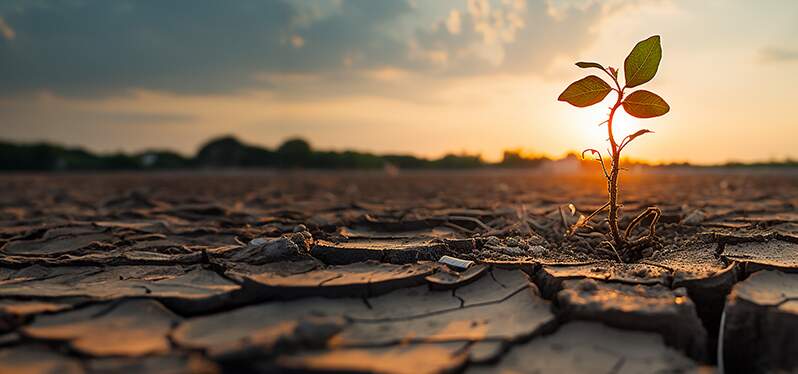
This Sunday, most of the heads of government present at the conference return to their countries. They carry in their luggage the warning from UN Secretary General, Antônio Guterres: “The diagnosis is clear. First, drastically reduce emissions. I urge countries to accelerate their net zero emissions timetables to achieve this goal by 2040 in developed countries and by 2050 in emerging economies.”
There is nothing wrong with separating trash, preserving forests and cleaning the oceans. However, these initiatives are not capable of eliminating the main element of rising temperatures on the planet, the emission of gases produced by the burning of fossil fuels. Once again, Brazil has a historic opportunity to influence the issue of emissions: on December 1st, the country assumed the rotating presidency of the G20, a group of the 20 largest economies on Earth, which represents 80% of global emissions.
Indigenous leaders warn about lack of direct aid
Of the US$494 million disbursed by a coalition of international donors in 2022, to finance programs in indigenous communities, only 2.1%, that is, US$8.1 million, were allocated directly to peoples or communities to which the intended. This alliance was launched two years ago at the Glasgow climate conference (COP26), and brings together large philanthropic foundations. The report presented by the donor organization points out that the amount received by communities in 2022 is almost 3% lower than in 2021. Among the causes cited for the resources not reaching the recipients is the diversity of laws in each country, and many avoid direct donations. The Global Alliance of Territorial Communities, which groups indigenous populations from 24 countries, warns that the amounts donated and what reaches the communities do not meet the needs of these populations.
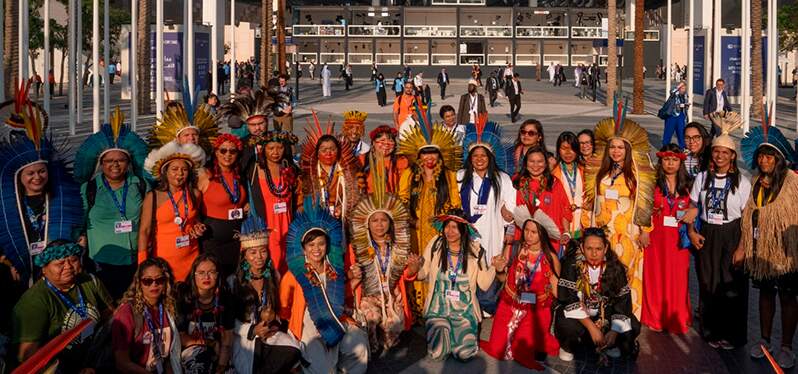
Macron announces donation to preserve the Amazon
In a post on social media, the President of France, Emmanuel Macron, informed that the country will donate €500 million to the preservation of the Amazon until 2026. “Like Brazil, we are determined to preserve the forests. Over the next three years, France will dedicate 500 million euros to preservation,” wrote the French president.
The announcement of sending funds for environmental preservation, however, came hours after President Macron criticized the agreement between Mercosur and the European Union. “[The agreement] does not take biodiversity and climate into account. It’s an antiquated, tariff-undoing trade agreement,” he pointed out. After France’s decision, the United Kingdom government announced the allocation of an additional 35 million pounds to the Amazon Fund, in addition to the 80 million pounds it had already announced in May this year.
COP holds meeting on climate change and health
This Sunday, the 3rd, the impact of climate change on health will be discussed for the first time at a COP. The President of the Conference of the Parties to the United Nations Convention on Climate Change, Sultan Al Jaber, said that “the link between health and climate change is clear, but has not been a focus of the COP process – until now”. According to the scientific journal The Lancet, there was a 68% increase in deaths of children and elderly people from 2017 to 2021, compared to the period 2000-2004, due to the increase in global temperatures. The World Health Organization (WHO) forecast that the annual contribution to health crises related to climate change could reach US$4 billion by 2030.
118 countries will triple renewable energy by 2030
Brazil and 117 other countries have committed to tripling the production of renewable energy by 2030, going from 3,400 gigawatts (GW) to 11,000 GW. The agreement aims to accelerate energy transformations and decarbonize the energy sector, which accounts for three quarters of greenhouse gas emissions. According to Reuters, China and India, large producers and consumers of fossil fuels, have signaled support for the initiative, but, so far, have not signed the global commitment. Another 22 countries have announced their intention to triple nuclear energy production by 2050.
As part of a transition project to a green economy, the Minister of Finance, Fernando Haddad, announced at COP 28 a plan to strengthen green economy initiatives in Brazil. According to him, the studies, presented by private organizations, point to the possible creation of 7.5 to 10 million jobs in various areas, with emphasis on bioeconomy, agriculture and infrastructure.
In addition to the transition in the country, the proposal has the ambition of encouraging the Global South to become a focal point for the green economy, by defending an environmentally sustainable and socially inclusive globalization.
The studies cited by the minister indicate that, to achieve this scenario, Brazil needs additional investments in the order of US$ 130 to US$ 160 billion per year over the next decade.
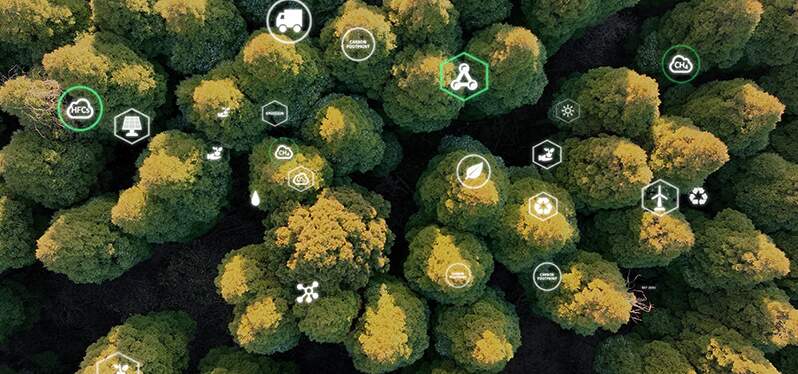
The Brazilian ecological transition plan has already gained an important ally. This Saturday, the 2nd, the Minister of Finance, Fernando Haddad, will meet with Joe Biden’s envoy for climate issues, John Kerry, who has already announced the United States government’s support for Brazil’s Ecological Transition Plan.
The meeting between the two authorities will be held at the Brazilian pavilion at COP28. The first plan alignment meeting, however, is scheduled for February 2024, before the G20 Finance Ministers Meeting.
With the partnership, the United States will cooperate in implementing the plan and generating private, governmental and philanthropic resources. There will also be initiatives in the area of technology, including the use of artificial intelligence, to accelerate, for example, the “implementation of forest monitoring systems”.
United States announces reduction in methane emissions
The United States government will present a rule at COP28 to considerably reduce its methane gas emissions. According to the International Energy Agency, the oil industry is one of the biggest responsible for high methane emissions in the world. With the country’s measure, it is expected to reduce gas emissions by almost 80% by 2038. Some resolutions are, for example, to end the routine burning of natural gas, and more rigorous supervision of oil and gas production.
Protect forests and eliminate the use of fossil fuels
Greenpeace Brazil spokesperson, Camila Jardim, warned yesterday in Dubai that the creation of a fund to protect tropical forests is a good initiative, but it should not serve to divert attention from the main global climate villain, which is the indiscriminate use of fossil fuels.
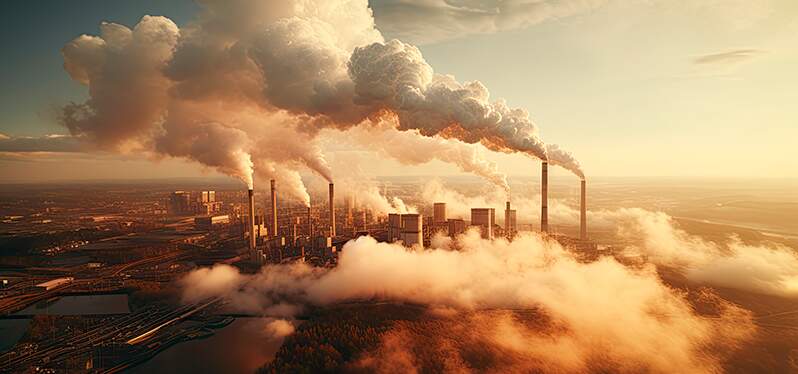
Natalie Unterstell, from the Talanoa Institute, pointed out, during COP28, that it is a contradiction for Brazil to want to lead initiatives to limit global warming to 1.5 ºC and, at the same time, want to increase its oil production, especially in the Amazon, and get closer to the world’s oil producing companies.
Brazil and the United Kingdom sign a decarbonization agreement
A commitment to cooperate to decarbonize the economy was signed by Brazil and the United Kingdom. The document provides for the encouragement of clean energy and new international partnerships. The Industrial Decarbonization Hub in Brazil (HDIB), as the memorandum was named, guarantees cooperation with exchanges of technical knowledge and workshops to promote the decarbonization of the sector.
In an unprecedented decision, COP28 (Conference of the Parties to the United Nations Convention on Climate Change) approved, this Thursday, the 30th, a loss and damage compensation fund. The action aims to help vulnerable countries with climate challenges. During the first four years, the fund will be managed on an interim basis by the World Bank.
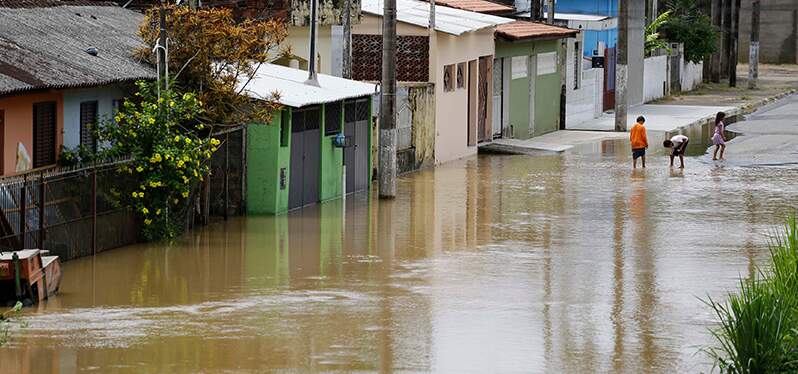
The European Union confirmed the donation of around US$245 million. In addition, Germany and the United Arab Emirates contributed US$100 million each, while the United Kingdom contributed US$75 million. Other countries, such as the United States and Japan, also allocated resources to the fund. The president of COP 28, Sultan Al Jaber, celebrated the approval of the measure: “We deliver history today. This is the first time that a decision has been adopted on the first day of any COP. And the speed with which we did it is also historic.”
The beginning of COP28 is marked by speeches from representatives of the more than 190 countries present. In almost 30 years of climate conferences, progress has been made, the topic “climate change” has entered the global vocabulary and global civil society is mobilized to guarantee the fulfillment of promises, especially from rich countries.
In this edition, in the United Arab Emirates, there is something new: the leading role of one of the largest oil producers in the world. Even under criticism from environmentalists, Sultan Al Jaber, who is also president of the country’s state oil company, told delegates that it is necessary to put oil at the center of debates. His argument is that this is the planet’s main fuel.
Few actors on the climate agenda have, to date, had the courage to be so explicit. In Brazil, for example, the government is working to strengthen a global discourse towards a green economy. However, it wants to expand the search for new oil reserves, including threats to sensitive territories at the mouth of the Amazon River. And, in these days, the Chamber of Deputies approved a project to encourage the implementation of electrical plants powered by mineral coal. Maintaining these contradictory interests has been one of the main obstacles to combating climate change.
COP 28 takes place on a planet embroiled in wars and without a consensus on the real possibility of eliminating the use of fossil fuels by 2050. These will be days of a lot of negotiation, especially to avoid setbacks. What is expected in relation to global commitments is that countries reinforce their iNDCs (acronym in English for Nationally Determined Contributions) presented in Paris, in 2015, and more ambitious targets, considering that the term “climate change” has already been run over by the concept of “climate emergency”.
At the negotiating table, one of the main topics will be money. Resources for the Loss and Damage Fund, to help countries that cannot adapt to the new climate reality, and the resumption of conversations about contributions and allocation of a fund worth US$100 billion per year (which has not yet been paid in), which it should be administered by the World Bank to finance climate adaptation projects. The scenario is one of fragmentation.
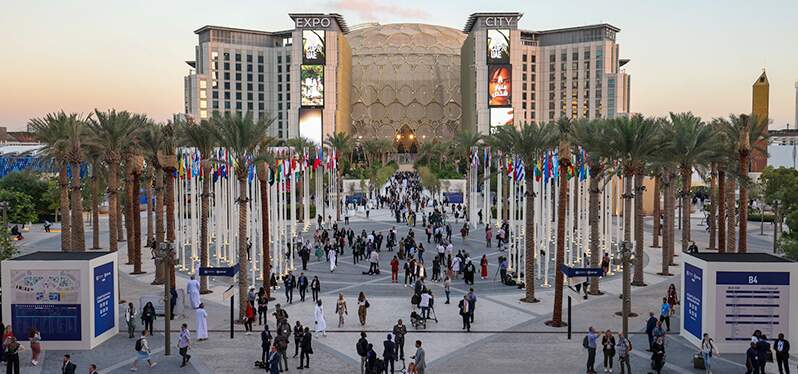
Brazil, however, comes with a positive and objective agenda. Secure resources for a fund that guarantees environmental services provided by forests in around 80 countries around the world.
This is an agenda with a series of ramifications. Preserving forests means investing in a forestry economy, which, according to scientist Carlos Nobre, does not exist in any country. Investments must be made in a vertical system that involves everything from actions to regenerate degraded territories to laboratories in scientific centers that should uncover the secrets kept in the biodiversity of thousands of living species.
President Lula embraced the agenda and knows that this objectivity will guarantee Brazil a leading role that, among the other countries present at the COP, is diffuse. Minister Marina Silva, in turn, understands the ambiguous relations of power in relation to economic and political interests and works to guarantee the country’s climate and environmental governance.
At COP 28, Marina has the same role. Regarding the headquarters in an oil-producing country, she explained that the conference space is UN governance. That it doesn’t matter the address of the COP, what is at stake are the interests of the planet.
Brazilian government carries a baggage of ambitions for Dubai
Brazilian diplomacy is paving the way for great ambitions in relation not only to COP28, which begins now in Dubai, but to consolidate its global climate leadership position at COP30 – which will take place in 2025 in Belém, in the Brazilian Amazon.
President Lula is already in the Middle East for business meetings and to make his debut at COP28, in the United Arab Emirates, one of the ten largest oil producers in the world, host of this year’s Climate Conference. In Lula’s luggage, he carries an ambitious plan to create an international fund for the preservation of forests and the promotion of a forestry economy in around 80 countries in the Americas, Africa and Asia that hold most of the tropical forests still remaining in the world. Earth.
The proposal to create this Forestry Fund resolves, in part, the dilemmas for the application of the promised contribution of US$ 100 billion that has occupied the COPs agenda since COP15, in Copenhagen, in 2009. Even though the protection of forests and research for a forestry bioeconomy does not solve the demands of the climate emergency, the Brazilian government knows that announcing the creation of this Fund during the COP in Belém will be a “goal” for the country’s climate leadership ambitions.
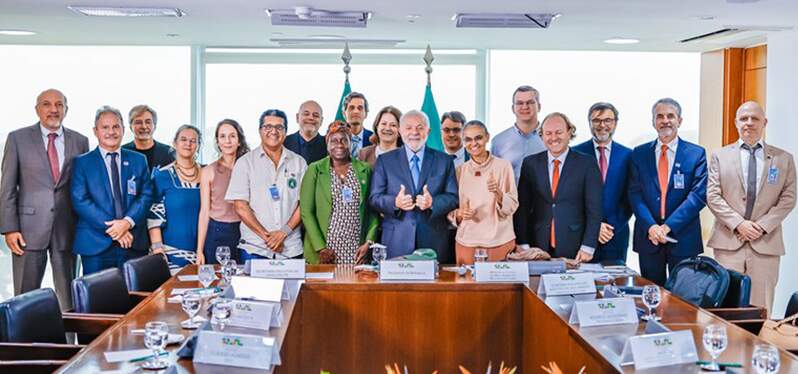
A document released before the start of COP28 by the Climate Observatory – an entity that brings together dozens of other socio-environmental and climate advocacy organizations – details expectations in relation to other urgencies to maintain the rise in the planet’s average temperature below 1.5° W:
These are quite ambitious wishes, but they take into account the central role that the country has played during negotiations at other COPs.
During COP21, in Paris, Brazilian diplomacy played a decisive role in building the commitments that were consolidated in the Paris Agreement. For COP28, the chief ambassador for climate negotiations, André Correa do Lago, hopes that Brazil will be able to improve the climate between developed and emerging countries, especially in relation to the investment foreseen in previous conferences.
Correa do Lago recalls that developed countries have been burning fossil fuels on an industrial scale since the 19th century, while most emerging countries only gained scale in this scenario from the second half of the 20th century, and that this inequality needs to be present in climate agreements .